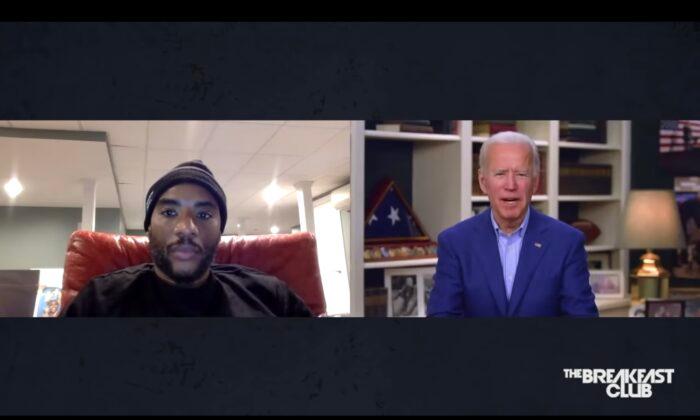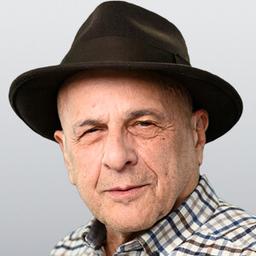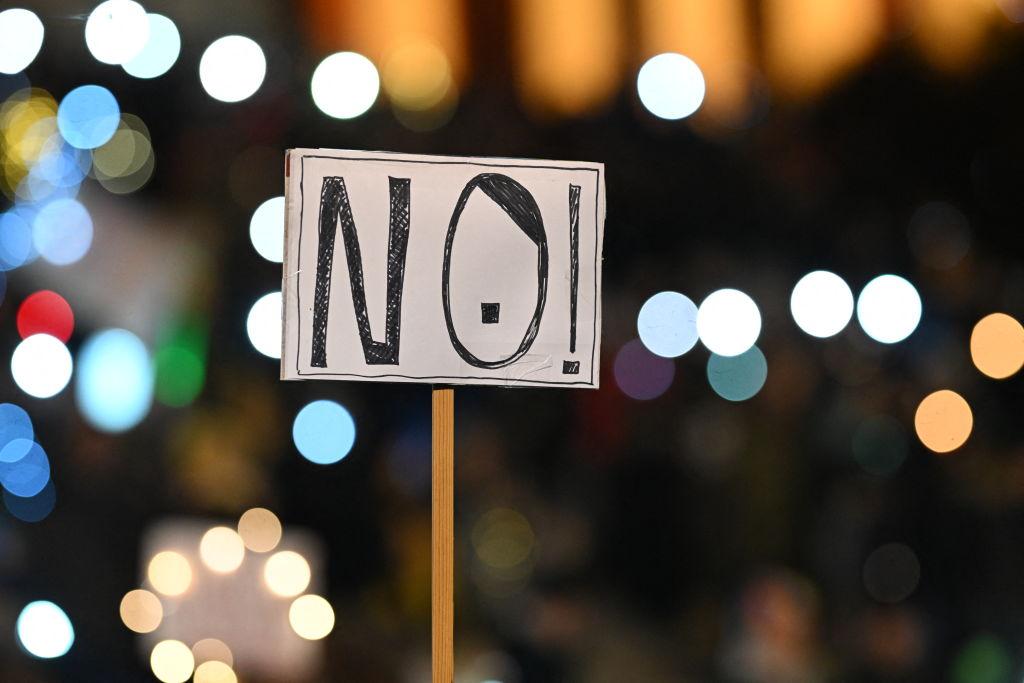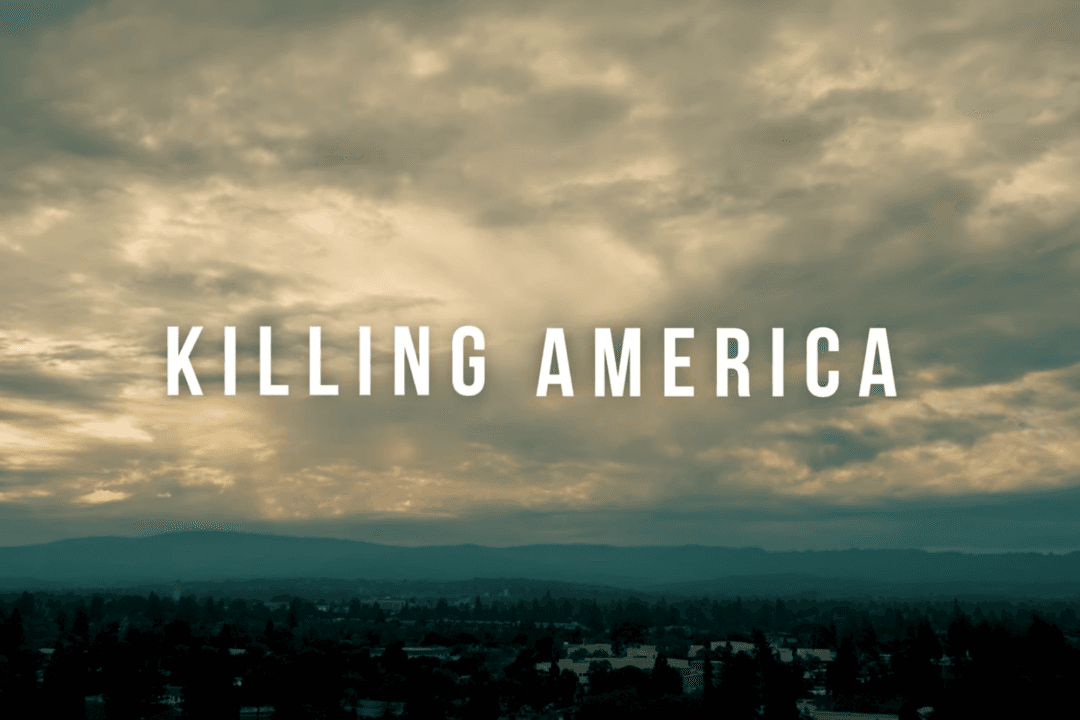We used to call it “identity politics,” but, amid their myriad “unmaskings” of recent days, the Democrats have rendered that term too polite and unmasked themselves for what they really are—racists.
On May 22, their presumptive presidential candidate, former Vice President Joe Biden, told black radio host Charlamagne tha God on the syndicated radio show “The Breakfast Club,” presumably speaking to the audience in general: “If you have a problem figuring out whether you’re for me or Trump, then you ain’t black.”
You can’t get much more racist than that—on multiple levels from the pseudo-Ebonics language, to the implication that African Americans can’t read unemployment figures, to the repulsiveness of telling people as distinguished as Larry Elder, Jason Riley, Star Parker, Sen. Tim Scott, Shelby Steele, and Thomas Sowell, to name just a few, that they aren’t black.
But I wasn’t surprised. As someone who has spent a good deal of time on both sides of the political equation, I have long ago concluded the Democrats’ accusations of racism toward Republicans were 90 percent projection and 10 percent lies.
Compare the persons mentioned above with Al Sharpton, Jesse Jackson, and Rep. Maxine Waters. Which ones are the racists? Which ones depend on race, only on race, and more specifically on racial divisiveness, for their fame and fortune?
How has it come to this?
Somewhere around 2003, I had one of those “aha!” moments that clarified for me how this all happened.
A man named Michael Berman emailed out of nowhere asking if he could take me to lunch. I didn’t recognize the name and was naturally hesitant until I discovered he was the brother of Howard Berman, for many years the powerful congressman from Los Angeles’ San Fernando Valley.
Of course, Howard was a Democrat. What would Michael want with me?
It turned out he was a political pro, I learned while having lunch with him at a restaurant on the Sunset Strip. He had an impressive resumé, having guided campaigns for the likes of Sen. John Tunney and Gov. Jerry Brown, not to mention his brother.
“So you made your political change because of 9/11,” he said to me. He’d evidently been reading my blog, which, in those days, was something of a small meeting place for people who were moving from left to right.
I nodded, even though it was more complicated.
“I beat you by 10 years,” he responded.
Wait. What? This big-time political pro had views opposite the politicians he worked for?
“I thought you ...,” I said.
“That’s my business,” he said. “It’s not what I think.”
No wonder he had wanted to have lunch. He was, I suddenly realized, akin to a sinner looking for expiation—or something like that.
“So what made you change?” I asked.
“What the Democratic Party did to black people,” he said flatly.
Stunned, I stared past him across the expanse of Los Angeles. We were sitting at an outdoor restaurant on the Sunset Strip because Berman was a chain smoker.
Over his shoulder, I could see the endless stretch of South Central LA, the city’s largely black ghetto, which included Compton and Watts of riot fame, areas that never seemed to improve no matter how many promises were made by liberal politicians.
What the Democratic Party did to black people, indeed. Years of exploitation flashed in front of my eyes—from LBJ using the n-word to brag about how African Americans would be Democrats forever after his “Great Society” onwards, through many proposals and pledges that were supposedly progressive but were separatist, even destructive, in actuality.
The black family, as we knew it, Berman pointed out, was disintegrating before our eyes due to social welfare programs that, despite good intentions (or were they?), were more addicting than uplifting.
As a former civil rights worker, it was a difficult meal to digest. But once I did, it became clear to me that most of the Democratic Party had abjured the goal of Martin Luther King for a colorless society and had what I called a “nostalgia for racism” in my 2016 book on moral narcissism.
Letting go of the racial divide was too difficult a task because it meant letting go of what too often defined their sense of self, reactionary as that was. Not letting go also yielded brain-dead remarks like the one we just heard from Joe Biden (the candidate has already apologized for being too “cavalier”).
But it was worse than that. This “nostalgia for racism” has served to both create and preserve racism in a society that was, until recently, freeing itself from it. And until the Democratic Party understands and abandons what it’s doing—something highly unlikely in the short run—this is going to continue.
The Democrats are the party of racism. They love it. They can’t live without it.






Friends Read Free